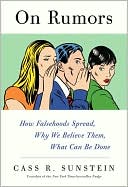Category Books
- Fiction Books & Literature
- Graphic Novels
- Horror
- Mystery & Crime
- Poetry
- Romance Books
- Science Fiction & Fantasy
- Thrillers
- Westerns
- Ages 0-2
- Ages 3-5
- Ages 6-8
- Ages 9-12
- Teens
- Children's Books
- African Americans
- Antiques & Collectibles
- Art, Architecture & Photography
- Bibles & Bible Studies
- Biography
- Business Books
- Christianity
- Computer Books & Technology Books
- Cookbooks, Food & Wine
- Crafts & Hobbies Books
- Education & Teaching
- Engineering
- Entertainment
- Foreign Languages
- Game Books
- Gay & Lesbian
- Health Books, Diet & Fitness Books
- History
- Home & Garden
- Humor Books
- Judaism & Judaica
- Law
- Medical Books
- New Age & Spirituality
- Nonfiction
- Parenting & Family
- Pets
- Philosophy
- Political Books & Current Events Books
- Psychology & Psychotherapy
- Reference
- Religion Books
- Science & Nature
- Self Improvement
- Sex & Relationships
- Social Sciences
- Sports & Adventure
- Study Guides & Test Prep
- Travel
- True Crime
- Weddings
- Women's Studies
On Rumors: How Falsehoods Spread, Why We Believe Them, What Can Be Done » (First Edition)

Authors: Cass R. Sunstein
ISBN-13: 9780809094738, ISBN-10: 0809094738
Format: Hardcover
Publisher: Farrar, Straus and Giroux
Date Published: September 2009
Edition: First Edition
Author Biography: Cass R. Sunstein
Cass R. Sunstein is the Felix Frankfurter Professor of Law at Harvard Law School (on leave). His previous books include Republic.com and Infotopia; he coauthored Nudge: Improving Decisions About Health, Wealth, and Happiness.
Book Synopsis
Many of us are being misled. Claiming to know the “pals” of presidential aspirants, dark secrets about public officials, and hidden causes of the current economic crisis, those who spread rumors know precisely what they are doing. They are sometimes able to derail political candidates, injure companies and reputations, even damage democratic governance. And in the era of the Internet, they know more about manipulating the mechanics of false rumors—social cascades, group polarization, and biased assimilation—than you do. They also know that the presumed correctives—publishing balanced information, issuing corrections, and trusting to the marketplace of ideas—do not always work.
A pioneer in the effort “to design regulation around the ways people behave” (The Wall Street Journal), Cass R. Sunstein uses examples from the real world and from behavioral studies to explain why certain rumors spread like wildfire and what we can do to avoid being misled.
Publishers Weekly
The coauthor of the bestselling Nudge continues his quest to gently reclaim human nature from its dysfunctional proclivities in this slender treatise on a slight problem. Sunstein, a legal scholar and Office of Management and Budget adviser, insists that false rumors are a real scourge, now made exponentially direr by the Internet's facility in disseminating them. Rumors, Sunstein says, can cause financial panics and undermine democracy itself by fueling unfounded suspicions of leaders and institutions. He buttresses this thesis with a laborious exposition of the psychology of rumormongering, delving into experiments that prove, among other truisms, that people tend to believe rumors that gibe with their preconceptions. Sunstein's alarmism seems unfounded—are rumors really more threatening today than in the pre-Internet dark ages when they sparked pogroms?—and the book feels like a padded-out magazine article, climaxing in a few unobjectionable but underwhelming proposals to modestly tighten up libel law. The intellectual turf he has staked out, bounded by law, social regulation and pop psychology, seems played out—so perhaps he should let it lie fallow awhile. (Sept.)
Table of Contents
Subjects
 Psychology
Psychology  Psychology - Theory, History & Research
Psychology - Theory, History & ResearchPsychology & Psychotherapy
 Psychology - Theory, History & Research
Psychology - Theory, History & Research  Social Psychology
Social PsychologySelf Improvement
 Personal Growth
Personal Growth  Characteristics & Qualities - Self - Improvement
Characteristics & Qualities - Self - ImprovementSelf Improvement
 See All
See All  Self - Improvement
Self - ImprovementMedical Books
 Psychology & Psychotherapy
Psychology & Psychotherapy  Psychology - Theory, History & Research
Psychology - Theory, History & Research
